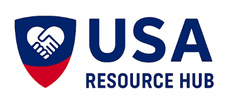When financial hardship strikes, many families turn to government programs for help. But there is another layer of support that is often overlooked which are religious and community-based organizations. These groups operate across the country, offering food, shelter, counseling, and emergency aid to people in need, regardless of faith or background.
What These Organizations Offer
Religious and community-based assistance programs focus on meeting immediate needs while offering long-term support. Services may include:
- Emergency food pantries and meal programs
- Rent and utility assistance
- Clothing and hygiene supplies
- Shelter and transitional housing
- Counseling and mental health support
- Disaster relief and recovery
- Job training and employment referrals
- Legal aid and immigration support
- Transportation vouchers or fuel assistance
- Childcare and parenting resources
Many programs are run by churches, mosques, synagogues, temples, or interfaith coalitions. Others are managed by nonprofit community centers or neighborhood outreach groups.
Why These Programs Matter
Religious and community organizations often fill gaps left by public assistance. They can respond quickly, offer personalized support, and serve people who may not qualify for government aid. Here are a few reasons they are worth exploring:
- Local focus: These groups understand the needs of their communities and tailor services accordingly
- Low barriers: Many programs do not require extensive paperwork or proof of income
- Holistic support: In addition to financial aid, they offer emotional and spiritual care
- Trusted networks: Long-standing relationships with local providers can help you access additional resources
- Inclusive outreach: While rooted in faith, most programs serve anyone in need, regardless of religious affiliation
According to FEMA’s guide on engaging faith-based and community organizations, these groups play a critical role in disaster response and long-term recovery.
Examples of National and Local Programs
Catholic Charities USA Offers food, housing, disaster relief, and immigration services through a network of local agencies. Many locations provide emergency financial assistance and case management.
The Salvation Army Provides shelter, rent assistance, utility support, and food programs. Their Family Services offices are located in most major cities and serve people of all backgrounds.
Jewish Family Services Supports families with counseling, food aid, and financial assistance. Services are open to all, not just members of the Jewish community.
Lutheran Services in America Operates programs for seniors, families, and people with disabilities. Includes housing support, health care navigation, and employment services.
United Methodist Committee on Relief (UMCOR) Focuses on disaster recovery, hunger relief, and refugee support. Works through local churches and community partners.
Local Interfaith Coalitions Many cities have interfaith councils or coalitions that coordinate services across religious groups. These may include food banks, shelter networks, and crisis hotlines.
How to Find Help Near You
Start with these steps:
- Call 211: This free, nationwide hotline connects you to local services, including faith-based and community programs
- Visit local churches or community centers: Many have bulletin boards or staff who can refer you to active programs
- Search online directories: Use platforms like LawHelp.org or TheHelpList.com to find nearby assistance
- Ask your local United Way: They often partner with religious organizations and can guide you to trusted providers
- Check with your city or county’s human services department: Many maintain lists of approved community partners
What to Bring When You Apply
To receive help, you may need:
- Identification for household members
- Proof of income or hardship
- Lease agreements or utility bills
- Medical or legal documents if applicable
Some programs offer walk-in support, while others require appointments or online intake forms. Be prepared to explain your situation clearly and ask about follow-up services.
Religious and community-based assistance programs are built on compassion, trust, and a commitment to service. They offer more than just financial relief; they provide connection, dignity, and hope during difficult times.


Leave a Reply